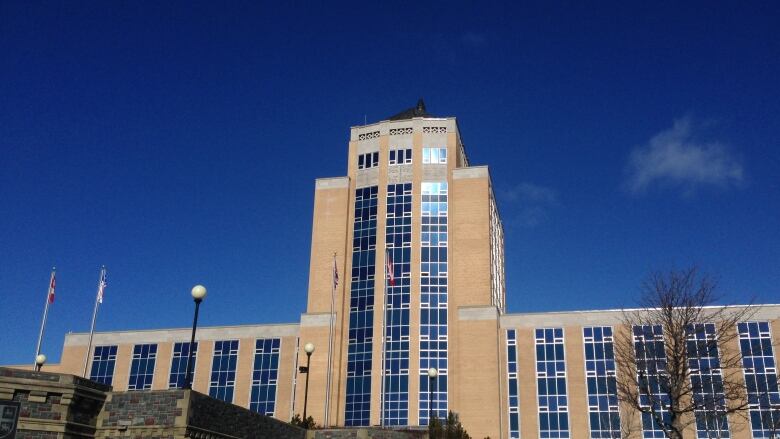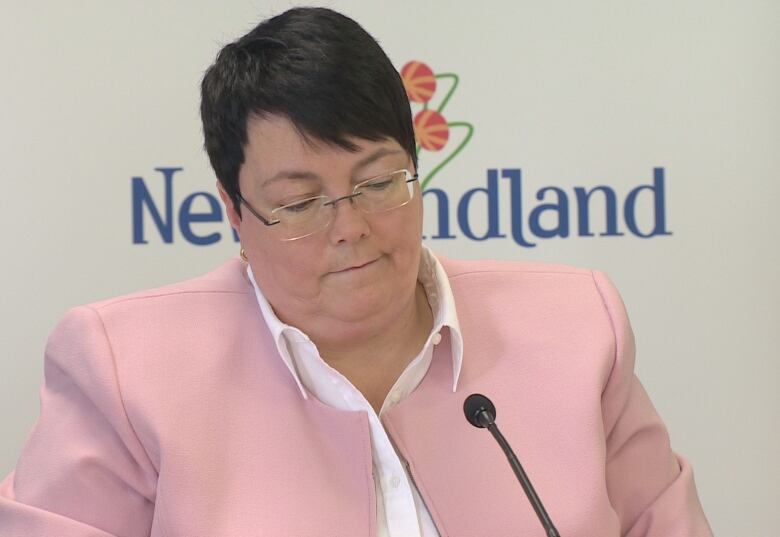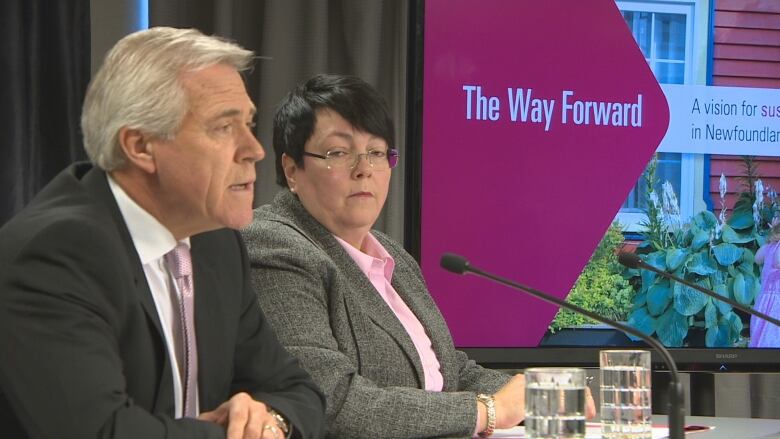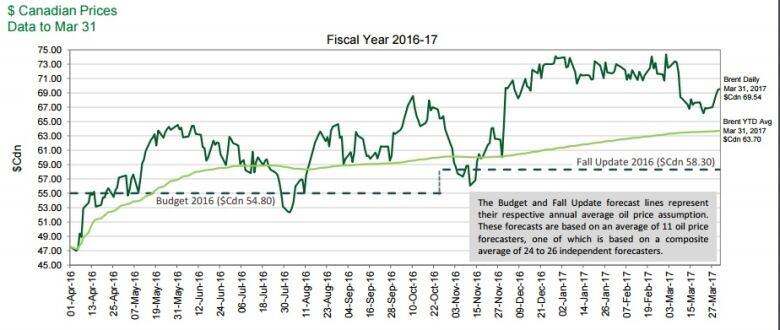Oil can be a crutch, and what a comfortable crutch it can be, too

Here's a pragmatic (if not a little cynical) way of looking at government in Newfoundland and Labrador.
Set up a government department, and just leave it alone. Watch it function and then, sooner or later, see it change. It would seek out new things to do new missions to accomplish, new programs to deliver, new needs to meet.
That little bit of government will review its performance, recommend new strategies, and sooner or later add staff.
Give that little bit of government more time, and other things would happen. Committees would form, a working group would sprout up, support employees would be hired, new space would be acquired to house them.
No doubt that little bit of government especially in a province like this would be under considerable pressure to have a presence in the different regions. Start adding bills for travel, leased space, per diems, conferences the list goes on.
There's nothing malevolent about any this. It's just the nature of government.
Indeed, it's human nature, too.
Part of the culture
There's no coincidence thatFinance Minister Cathy Bennett is fond of using the phrase "culture of spending" when she describes her mission at Confederation Building.

At the same time, Bennett and her cabinet colleagues have been facing another element of human nature that involves the other side of the budget ledger: where the money comes from, and the temptations that sail into port when the winds are fair. More on that in a bit.
As for spending, Bennett, as the de facto face of public austerity, says her responsibility is to "look for every single way to save every single dollar we can."
Bennett made that comment last week, while she was speaking with reporters on Budget Day. She underscored how methodical government has been at looking at every line item of every department, agency and service not just to nip here or cut there, but to do something more fundamental.
- Near-doubling of offshore revenue saves N.L. from financial abyss
- N.L. avoids layoffs, tax hikes in stay-the-course budget
The savings have already been adding up. Asked about where Bennett has been finding savings, she started counting off one area after another.
"Roads, bus contracts, cellphones, leased spaces the list is lengthy," she said.
The biggest single element of spending, though, involves salaries (and thus related benefits), and that's where things will get tricky. A year ago, we had been led to expect a three-part budget process that would include some drama in a fall budget (which never materialized) and a spring 2017 budget that would inevitably focus on layoffs.
'Not a priority to do massive layoffs'
The big layoffs didn't happen, but no one should perceive the latest budget as one that avoids layoffs at all costs.
"It is not a priority of government, and not a plan of government, to do massive layoffs," Bennett said.

Instead, the Liberals are eliminating jobs as they systematically go through every part of the government with the most substantial questions to be resolved at the bargaining table, where government is already seeking conciliation in talks with seven major groups represented by NAPE and CUPE.
Bennett's speech made a note of saying that the Liberals will use the legislature to impose a wage freeze on workers not represented by union contracts. That will be a bit of political theatre that will be hard for union leaders and their constituents to ignore.
Bennett when asked whether public servants should still be fearful for their jobs, even though the mass layoffs feared for months did not materialize replied that she wanted them to "understand that we are working on a culture of spending."
Indeed, everyone can expect to hear that phrase again in the months to come, as the cabinet questions and tests pretty much everything that costs money.
In Bennett's eye, it's all too easy for a government, when left alone, to find new ways to spend money.
"We continue to have a spending problem," Bennett told reporters, citing a phrase she has been using since the Liberals took office in the late fall of 2015, when oil prices happened to be in the trough.
Speaking of oil
It's no wonder that Bennett emphasizes the spending side of the ledger, because experience has shown that relying on revenues is far from reliable especially when the commodity is oil, a commodity that enabled an ambitious expansion in public spending over the last decade.
As it turns out, oil has proven, again, to be something that can help a government through a tough time. There's no doubt that the recent uptick in prices, well above what government cautiously forecast last year, not only softened the deficit for the fiscal year that just wrapped up, but allowed the Ball government to make some less draconian decisions for this year.

After all, oil prices had dropped like the Tower of Terror ride at Disney World, with the government last year assuming that offshore oil royalties would be less than a fifth than what they were at peak, just over five years ago.
How much did oil help the treasury? Let's look back over the last decade or so. This chart shows what each government forecast for offshore oil royalties, followed by the revised amount published a year later.
| Fiscal year | Forecasted oil royalties | Revised oil royalties |
| 2006/07 | $663,400,000 | $385,932,000 |
| 2007/08 | $996,500,000 | $1,473,127,000 |
| 2008/09 | $1,789,300,000 | $2,501,068,000 |
| 2009/10 | $1,262,200,000 | $1,826,383,000 |
| 2010/11 | $2,128,400,000 | $2,435,300,000 |
| 2011/12 | $2,269,400,000 | $2,800,772,000 |
| 2012/13 | $2,224,811,000 | $2,011,719,000 |
| 2013/14 | $2,067,393,000 | $2,045,318,000 |
| 2014/15 | $2,380,907,000 | $1,713,778,000 |
| 2015/16 | $1,157,671,000 | $572,339,000 |
| 2016/17 | $484,900,000 | $885,469,000 |
| 20017/18 | $902,765,000 | Will be revealed next spring |
Quite the range, eh? For five continuous years, starting in 2007,Newfoundland and Labrador was pulling in significantly more oil cash than it had forecast, maybe even imagined.
And government swelled. Six years ago, right at the peak of it all, we brought you the story of how the core civil service had jumped from6,792 jobs in 2005 to 8,429 in 2010. Government was bursting at the seams, so much so that the parking lot at Confederation Building was bumped out.
"Twenty-one per cent is reasonable,"Tom Marshall, the finance minister of the time, told us. "It's just under 1,500 jobs over an eight-year span."
A matter of discipline
Oh, what a crutch oil can be.
Who could fault Premier Dwight Ball, who insisted on campaigning in late 2015 on a platform that promised both a cut in the sales tax and no layoffs, fordreaming of a return to an annual haul of $2.8 billion in oilroyalties?

But that defeats the purpose of what Cathy Bennett means when she talks about a culture of spending, or saying we have a spending problem. After all, the last government was in a deficit position even when oil prices were over $100 US.
I asked Bennett about this, about how tempting it must be for a politician to lean on oil and not make a difficult decision.
She responded, "The ability to separate the choices that we have to make to get our spending in line from potential oil royalty improvements is a discipline that a government in Newfoundland and Labrador needs."
And should we ever get back to those $2-billion-a-year days? Bennett saysgovernment needs to "get to the point where we can use revenues that are unexpected and unpredictable" to pay off the debt.
It's a weighty goal.
And it will be a true political test of the Liberal government to see how disciplined they actually are in sticking to the current plan.












_(720p).jpg)


 OFFICIAL HD MUSIC VIDEO.jpg)
.jpg)



























































































